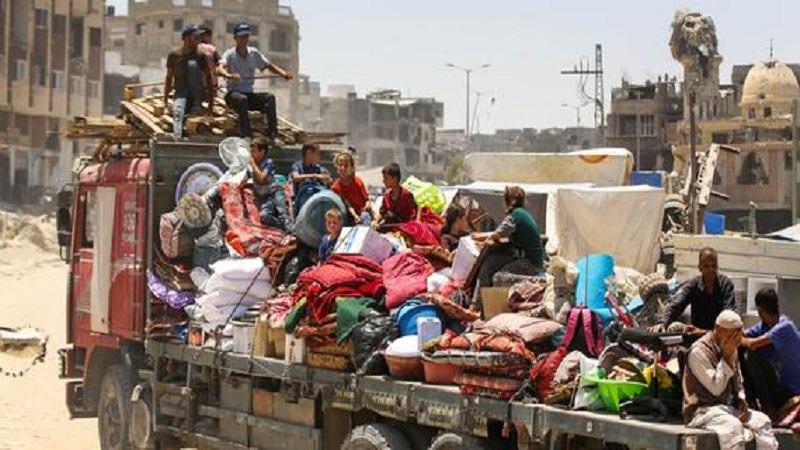Critical Humanitarian Crisis in Gaza: UN Voices Grave Concerns Over Displacement and Resource Shortages
Gaza City, Palestine – The humanitarian crisis in Gaza has reached alarming levels as thousands of residents face dangerous and chaotic conditions, according to recent reports from the United Nations. The displacement of civilians and the severe shortage of essential resources have been exacerbated by ongoing hostilities, creating a dire scenario for those trapped in the region.
Stephane Dujarric, chief spokesperson for UN Secretary-General António Guterres, highlighted the urgent situation during a press briefing. "Our colleagues from the Office for the Coordination of Humanitarian Affairs (OCHA) describe the displacement of thousands of people in Gaza City as dangerously chaotic. This follows recent Israeli evacuation orders instructing people to leave into or through neighborhoods where active fighting is taking place, or areas where separate evacuation orders were later issued," he said.
A Chaotic Exodus
Gazans have been forced to flee in various directions under the constant threat of bombardment, often with little to no possessions. The lack of clear guidance on safe evacuation routes has only intensified their plight. "Civilians in Gaza must be protected and have their basic needs met, whether they move or stay," Dujarric emphasized. "Those who leave must have enough time to do so, as well as a safe route and a safe place to go."
Humanitarian Access Severely Hindered
OCHA has raised alarms about the inability of aid organizations to access critical areas due to ongoing violence. Active hostilities have obstructed efforts to reach warehouses to obtain necessary supplies. Consequently, the largest bakery supported by the United Nations in Gaza had to shut down due to recent evacuation orders, resulting in significant losses of essential items such as flour, sugar, and yeast.
Bread: A Lifeline Under Threat
Bread is considered a staple in Gaza due to its affordability and ability to stave off hunger. Despite the challenges, humanitarian workers managed to supply fuel to multiple bakeries enabling them to operate backup generators in the absence of electricity. Currently, 10 bakeries are operational—including seven in Deir al Balah and three in northern Gaza—out of the 18 supported by the UN in the region. However, this fuel is only sufficient to sustain operations for another day or two.
Fuel Shortages and Blocked Humanitarian Aid
The supply of fuel remains critically low. Despite efforts to bring over 500,000 liters of fuel into Gaza in the first week of July, and over 2 million liters in June, these amounts fall significantly short of the estimated 400,000 liters required daily for essential operations. “Efforts to bring fuel and critical humanitarian assistance into Gaza continue to be impeded by active hostilities, damaged roads, access limitations, and the lack of public order and safety,” Dujarric explained. These factors severely restrict movements along the main humanitarian cargo routes.
Dire Conditions for Women and Vulnerable Populations
The United Nations coordinator for humanitarian affairs in Palestine, Muhannad Hadi, recently visited Deir al Balah in Gaza to assess the situation firsthand. During his visit, he met with various UN and non-governmental entities, including women-led organizations, who shared distressing reports about the conditions women face in Gaza.
The ongoing conflict and subsequent humanitarian challenges in Gaza create an urgent and bleak scenario for its residents. The international community’s efforts to provide relief and support are critically needed to address these escalating crises.
For more information, visit the United Nations Office for the Coordination of Humanitarian Affairs.
For further updates on this developing situation, stay tuned to our website.
